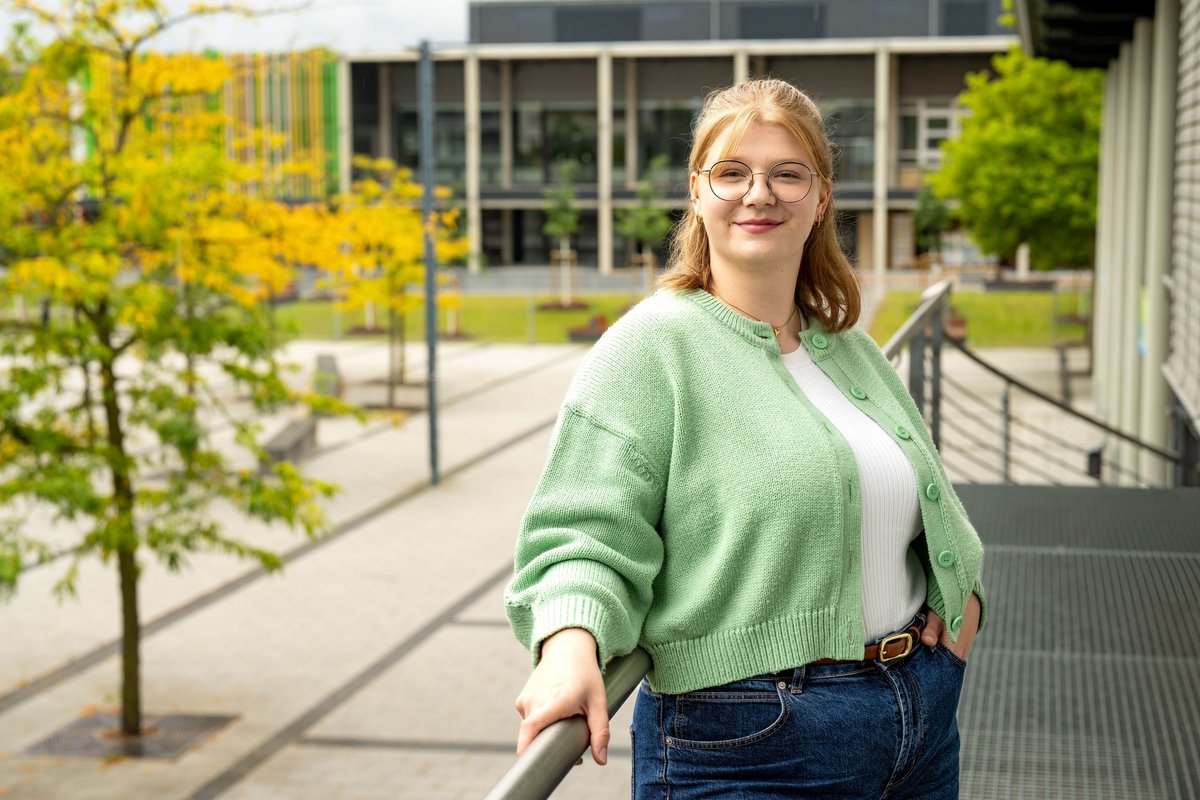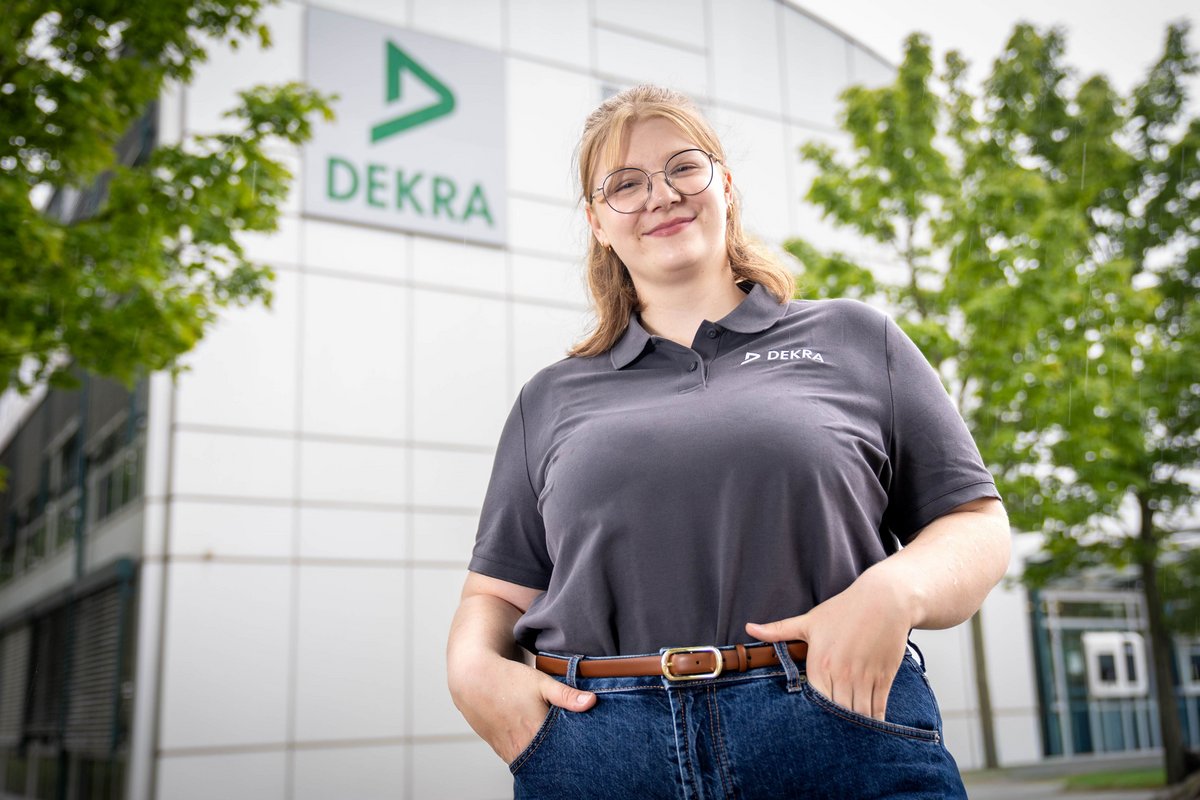From student to expert - first graduate of the Medical Engineering study programme
Marlene Felker received a grade of “Very Good” for her bachelor's thesis, which she defended on August 20, 2025. Since 1 September, she has been employed as an expert for medical technology at the Cottbus branch of DEKRA, the world's largest independent, non-listed expert organisation in the field of testing, inspection and certification.
Marlene Felker completed her A-levels at the Paul-Fahlisch Gymnasium in Lübbenau.
"As I come from the local area, BTU Cottbus-Senftenberg was immediately my favourite university," recalls the 21-year-old. "In my school career, I was good at the natural sciences, but technology was not my favourite subject. That's why I wanted to expand my interest in the medical sector with a technical supplement."
She was given the opportunity to do this by studying Medical Engineering at BTU.
"I received the BTU's STEM Women's Scholarship when I started my studies, which made it easier for me both financially and by helping me make my first contacts," reports Marlene Felker. In November 2023, she joined the DEKRA Cottbus branch as a working student.
Looking back on her time as a student, Marlene Felker notes that both she personally and the new Medical Engineering degree programme led by Prof. Dr. Michael Beck have developed very positively. The lecturers, who always had an open ear for the students' problems and suggestions, succeeded in making the programme even more practice-oriented. Since the winter semester 2023/24, students have also been taking advantage of the dual medical technology degree programme offered by BTU in cooperation with companies.
Highlight of the course
Marlene Felker particularly enjoyed the medical device technology module: "This combines the practical aspects of medical engineering with the technical and organisational basics of medical devices. As the study programme was new, we as students were able to help decide some of the content of the subject. My personal highlight was the communication and cooperation with other students, professors, lecturers and research assistants. These contacts make studying easier and I didn't expect that to this extent beforehand."
Challenges and tips
The first semester was particularly challenging for Marlene Felker - the transition from everyday school life to studying, the need to organise yourself well and to structure your day well with a full module schedule.
This is also the reason for her tip to new students: "Don't give up in the first semester, keep going! Because the further you progress in your degree programme, the more enjoyable it will be. If you know before you start your studies that theoretical learning is not your thing, then definitely think about a co-op programme. The practical relevance can really help you to stick with it and always represents a goal that you are working towards with your studies. I'm sure that this practical relevance as part of my work as a student trainee at DEKRA has carried me through my studies."
In DEKRA's Cottbus branch, Marlene Felker found a practical partner that challenges and funds students, but also takes them by the hand at the right moments. She worked on projects there until her final degree and also wrote her bachelor's thesis in cooperation with DEKRA. She developed a modular testing device with which the components of the medical gas supply system in an emergency vehicle can be tested on a recurring basis. As a working student, she was part of a team and can now seamlessly pick up where she left off after completing her final degree.
As an expert in medical technology, the young BTU graduate Marlene Felker is able to test a wide range of devices that are used in emergency services, hospitals, doctors' surgeries and physiotherapy practices, for example, in order to ensure their safety.
"DEKRA will continue to supervise students in the field of medical technology. I would of course be delighted if they could benefit from my experience and would like to be a helping hand from time to time. Personally, I would like to settle into my job in the coming weeks and months, get to know the company better and grow with my tasks," explains Marlene Felker.
To the Medical Engineering study programme at BTU Cottbus-Senftenberg:
https://www.b-tu.de/medizintechnik-be
To the complete study programme of the BTU Cottbus-Senftenberg:
https://www.b-tu.de/studium/studienangebot
Until 15 September 2025, prospective students still have the opportunity toapplyvia the myBTU portalforBachelor's degree programmes (without NC ), including the Medical Engineering study programme.
Further information on application and admission:
https://www.b-tu.de/studium/vor-dem-studium/bewerbung-zulassung-immatrikulation
Specialist contact
Press contact
Kommunikation und Marketing
T +49 (0) 3573 85-283
ralf-peter.witzmann(at)b-tu.de


